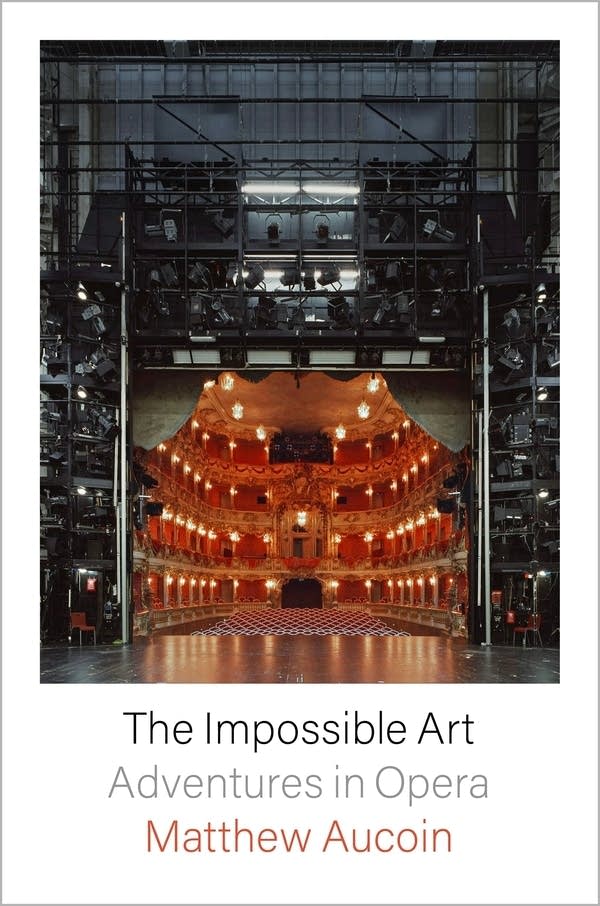The Metropolitan Opera starts its broadcast season Dec. 4 with Matthew Aucoin’s Eurydice. Inspired by the Greek myth of Orpheus and based off Sarah Ruhl’s 2003 play, the opera hopes to reach a wide audience by blending universal storytelling with contemporary flair. In an interview with YourClassical, Aucoin talks about his reimagining of a classic tale.
Listen to the Met’s productions on YourClassical MPR’s radio stream at noon Saturdays. Check the Met’s 2021-22 broadcast season schedule to see what’s coming up.
How is this opera different from the traditional story of Orpheus and Eurydice?
“I would go so far as to say it's a different story altogether. The play version of Eurydice, that the opera is based off, takes the myth as its starting point. Sarah Ruhl spoke about the original story as a vehicle for telling a personal story about a young woman in the 21st century. For me, the core of our piece is the question, ‘What would you say to someone you love if you encountered them in the afterlife?’
“Eurydice is lured to her death by Hades, Lord of the Underworld, in the guise of a scuzzy businessman. He lures her to his penthouse apartment. She dies and passes through the river of forgetfulness. For me, that's where the drama begins, because she encounters first her father and then Orpheus. It's about what you say to the people you're closest to when you're in the dreamlike state of being dead. I think this opera is especially good at living in that state because when you sing nothing can be realistic. It's automatically dreamlike.”
How did you approach this new composition for an old Greek story?

“Ruhl's play is largely a dreamlike autobiography. It's the story of a young woman who is still insecure, though very smart, and who has a relationship with an uncommunicative musician whose name happens to be Orpheus. She learns a lot about herself, ironically through dying, which is like being reborn. This is to show you that the classical sources were not really in mind when I was composing. It's ironic. I have just written a book about opera, The Impossible Art Adventures in Opera, which is coming out on Dec. 7, and in that book there's a chapter on other Orpheus-inspired operas. I did that deep dive into the Greek tragedy after Eurydice premiered in Los Angeles in 2020. I didn't want to clutter my compositional mind with sources or models while I was writing the opera.
How did you blend an emotional and realistic part of the human experience with the fantastical?
“Opera is always fantastical. Simply because people are singing, it can't help but be that. Opera is never realism even if the sets look realistic, because the atmosphere is made of music. It's not made of air. For composers and librettist, the question is, do you externalize that fantastical quality? Or do you pretend it's not there and write a piece that is realistic on the surface? What I found out working with Ruhl is that if the exterior looks dreamlike it makes it easier to get real emotions because it's the nature of opera.
“Archetypal figures, like people from myths, are in a way easier for the audience to relate to because they embody some aspect of human life that is present for everyone. If you recognize that a character is from a different class, background or country than you you might not relate. Whereas, if you give them mythical clothing it actually invites the audience to identify with the people on stage. I like leaving a certain openness or dreamlike quality to allow the audience to bring their own experience to bear.”
Do you hope the casual language of the opera will help it reach a younger and wider audience?
“I hope so. Opera will always be an epic spectacle. It's never going to be like watching Seinfeld or Succession. I do think that audiences of all ages and hopefully young audiences will feel something to connect with here. I think they're going to feel like, ‘Oh! This was written by two artists who are living in my world.’ Ruhl and I don't live under a rock. We are 21st-century artists.
“I want to celebrate the insane, transcendent artistry of the singers who are performing in this production. Erin Morley is doing sublime work. The unstoppable Met orchestra and chorus are just an army of beauty that really make this an overwhelming musical experience.”
Love the music?
Show your support by making a gift to YourClassical.
Each day, we’re here for you with thoughtful streams that set the tone for your day – not to mention the stories and programs that inspire you to new discovery and help you explore the music you love.
YourClassical is available for free, because we are listener-supported public media. Take a moment to make your gift today.
